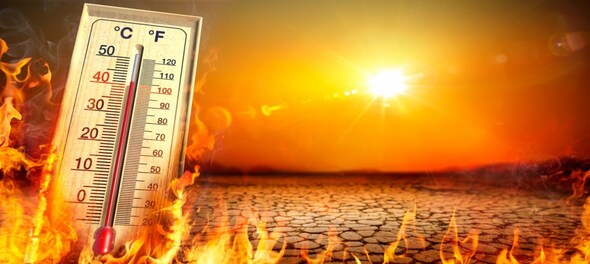
Indian farmers have been able to adapt to temperature changes for their rice and maize crops but not for wheat, a study that has been published in the Agricultural Economics journal states. The study by researchers from the University of Illinois, US, examines data over 60 years to assess the adaptation of Indian crops to climate change. It states that there is a large disparity when it comes to agricultural vulnerability between developed as well as developing countries.
"Increased precipitation enhanced rice yield, but adversely affected wheat and maize yields," said Madhu Khanna, an agriculture and consumer economics professor, who is also an author of the study.
Researchers also found that farmers have been customising strategies across various regions and crops. "For example, heat-prone districts fared better to higher temperatures compared to districts in colder regions," Khanna said.
The researchers conducted a similar study in the US as well. "It's interesting that the results of this study are telling us that in both countries, although there is a negative impact of climate, crops are adapting," Khanna said, adding that the effects differ across crops and the types of effects they adapt to.
Khanna added that, usually, studies look at year-on-year changes to measure the effects of climate change. However, these represent variations in weather and not climate, the researcher said.
Also Read: Earth Day: This 17-year-old boy is helping reverse the damage done to the marine ecosystem
The researchers from the University of Illinois examined India's major food grains to understand the climate change effects — long and short-term — on crop yields.
Weather changes are short-term, such as a warm or cold day or a sudden thunderstorm. However, when it comes to climate change, these variations can be long-term. "We were looking to see if the effect of short-term deviations in extreme temperature and precipitation are significant when compared to their long-term averages and if their effects are absent in the long term as farmers adapt to climate change,” Khanna said.
To determine if the farmers were adapting to the long-term climate changes, researchers used the quantile regression models — 60 years of data sets on precipitation, temperature, length of the growing season as well as crop yield — to create separate models for short and long-term crop responses.
According to the analysis, if temperature differences did not affect either model, that meant there were no adaptations made by the crops. While, if the impact on the short-term model was worse, then it meant the farmers had been able to smooth out and adapt to the effects.
“The impacts are higher at the lower tail of the distribution, but are lower at the upper tail of the distribution,” Surender Kumar, a professor of economics at Delhi University, said.
The study found that farmers who worked in less productive areas (lower tail of the distribution) had a different response from those who worked in higher yield areas. The former took more measures for adaptation because of higher impacts.
"Higher productive regions have better irrigation facilities and are less dependent on the monsoon, and so the difference between long-term and short-term impacts is negligible,” Kumar said.
According to the study, there are two ways the farmers can adapt -- the farmers can change their management practices or the varieties are hardier. The study suggests action could be taken to improve the seed varieties as well as educate farmers on how to adapt to climate change.
"We need to take a holistic view of all the various ways in which changing climate effects yield, which is obviously a very challenging and complex problem, and understand that focusing on particular dimensions of climate change and adapting crops may not be sufficient," Khanna said.
Check out our in-depth Market Coverage, Business News & get real-time Stock Market Updates on CNBC-TV18. Also, Watch our channels CNBC-TV18, CNBC Awaaz and CNBC Bajar Live on-the-go!


Exclusive | NDA will cross 400 mark before 12:30 pm on June 4, can win all 80 seats in UP, says Amit Shah
May 2, 2024 12:47 PM
View | Congress manifesto vs BJP's wealth redistribution narrative — is it something out of nothing
May 2, 2024 9:10 AM
Two days left for filing nomination, Congress undecided on candidates for Amethi and Rae Bareli seats
May 2, 2024 7:32 AM
Lok Sabha polls: Polling time in Telangana increased by an hour, here's why
May 2, 2024 6:55 AM

